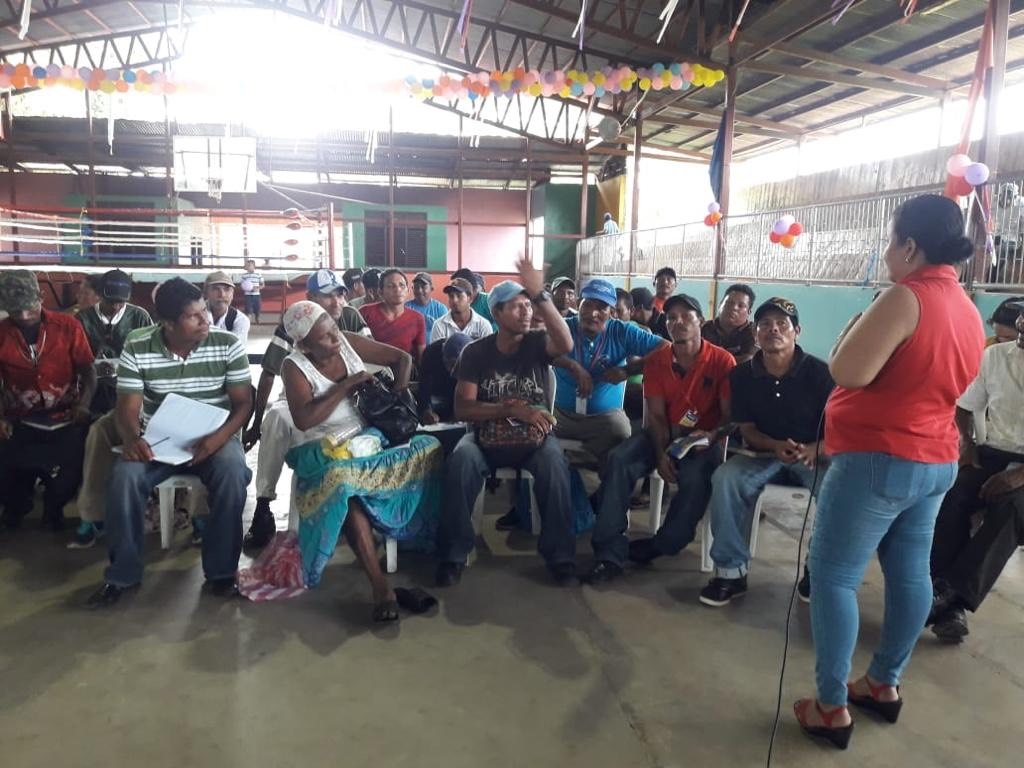Wangki Tangni Indigenous Women’s Movement
Background and objective
In the North Caribbean Coast of Nicaragua there is model of governance in which the wihtas or communal judges are the administrators of justice in neighborhoods and communities through the use traditional laws. They promote the restoration of order through mechanisms that are strictly communitarian, traditional and customary. Thanks to the judiciary, the state of Nicaragua has recognized and made official the work of the Wihtas, and is now reproducing this practice in the rest of the country through judicial facilitators.
The main objectives of the project are to document governance models in the administration of justice of the Wihtas (communal judges), specifically in cases that involve violence towards women, and to document articulation strategies for the adaptation of the state’s judicial power. At the same time the project seeks to encourage continuous training in the Miskitu language.
Dialogue between 50 wihtas of Bilwi and Waspam. Exchange of experience between different justice administrators, women’s organizations and other institutions. 50 wihtas trained with the manual of functions in their native language. Creation of network of administrators of justice. Implemented the strategy of communication of strengthening and visibility of the governance in administration of justice of the wihtas.
Local partner information
The Wangki Tangni Indigenous Women’s Movement is a community-based organization of Indigenous women that works to uphold the human rights of indigenous women and their families. Wangki Tangni is built on an integral relationship with Mother Nature, collective and individual well-being, as well economic, cultural, social, spiritual and physical connectedness. The Wangki Tangni members seeks to participate and influence decision-making, and guarantee dignified conditions today and for future generations.

